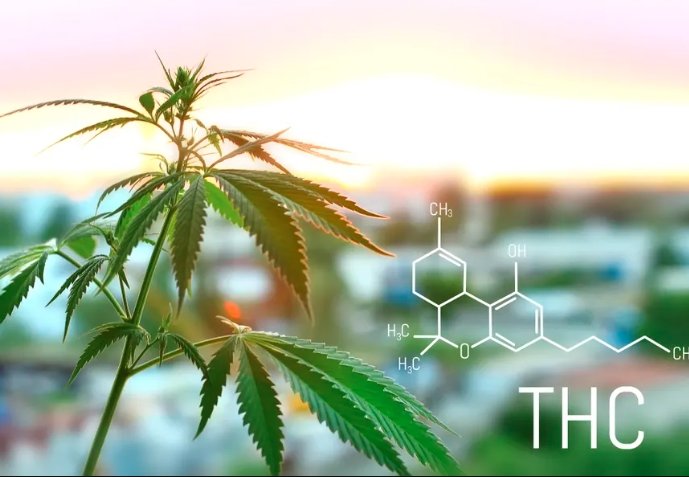Florida is moving closer to imposing restrictions on hemp-derived products that contain intoxicating levels of THC, the psychoactive compound found in cannabis. The state Senate and House have both passed bills that would ban or cap the amount of THC in hemp extracts, such as delta-8 and delta-10, that are sold over-the-counter at convenience stores, CBD shops, and online platforms. The bills aim to address the health and safety concerns raised by the growing popularity of these products, especially among young people.
What are hemp-derived THC products?
Hemp and marijuana are both cannabis plants, but they differ in their THC content. Hemp has a THC level of 0.3 percent or less, while marijuana has much higher levels. Hemp is legal to grow and sell in Florida since 2019, following a federal farm law that legalized the crop. Hemp is used to produce various products, such as fiber, oil, food, and CBD, a non-intoxicating cannabinoid that has medical benefits.
However, hemp also contains other cannabinoids that can be extracted and infused into products to create euphoric effects. These include delta-8, delta-10, HHC, THCA, THCP, and THCV. These products are marketed as legal alternatives to marijuana, but they are not regulated by the state or the federal government. Some of them are also synthetically produced from CBD or other chemicals.
Why are lawmakers concerned?
Lawmakers who support the bills say that hemp-derived THC products pose a risk to public health and safety, as they are often mislabeled, untested, and inconsistent in their potency and purity. They also say that these products are attractive to children and teens, who may not be aware of their effects or potential harms. Some of the reported side effects of these products include anxiety, paranoia, nausea, vomiting, and impaired driving.

Sen. Colleen Burton, a Lakeland Republican who sponsored the Senate bill, said the proposed restrictions are necessary to protect consumers and prevent abuse. “We have a responsibility to ensure that products sold in Florida are safe for Floridians,” she said.
Rep. Jackie Toledo, a Tampa Republican who sponsored the House bill, said the products are “dangerous” and “unregulated.” She said she was motivated by her own experience as a mother of five children, who found delta-8 products at a gas station near her home. “This is something that we need to get ahead of,” she said.
What do the bills propose?
The Senate bill (SB 1698) and the House bill (HB 1613) have some differences, but they both aim to limit the THC levels in hemp products and strengthen the packaging and labeling requirements. The main provisions of the bills are:
- Prohibiting businesses from manufacturing or selling products that contain more than 0.3 percent of delta-9 THC, the most common form of THC in cannabis. This would effectively ban delta-8 and delta-10 products, which usually have higher levels of delta-9 THC than hemp.
- Placing limits on other cannabinoids, such as HHC, THCA, THCP, and THCV, that have intoxicating effects. The bills would allow products that contain these cannabinoids to have a maximum of 2 milligrams per serving and 10 milligrams per container, or a lower amount set by the Department of Agriculture and Consumer Services (DACS).
- Requiring businesses to obtain permission from DACS before removing or using any hemp extract products that are intended for human ingestion or inhalation. DACS would have to verify that the products comply with the state law and the federal farm bill.
- Requiring businesses to label their products with the total delta-9 THC concentration, the serving size, the number of servings per container, the expiration date, and a warning statement that the product may cause impairment and is not intended for use by anyone under 21 years old.
- Prohibiting businesses from packaging their products in a way that is attractive to children, such as using cartoons, bright colors, or candy-like shapes or flavors.
How are hemp farmers and businesses reacting?
Hemp farmers and businesses that produce or sell hemp-derived THC products are opposed to the bills, saying they would hurt their livelihoods and deprive consumers of their choice and access to beneficial products. They argue that hemp-derived THC products are legal under the federal farm bill and that they have therapeutic and recreational value for many people. They also say that the bills are based on misinformation and fear-mongering, and that they would create a black market for these products.
Jammie Treadwell, co-owner of Treadwell Farms, a hemp farm in Umatilla, said she and her family invested in the hemp industry after the 2019 law passed, and that the bills would “pull the rug” from under them. She said hemp-derived THC products are in high demand and that they help people with various conditions, such as pain, anxiety, insomnia, and PTSD. “We feel like you’re taking away our rights as farmers and as consumers,” she said.
Philip Snow, an attorney who represents hemp businesses across the country, said some of his clients relocated to Florida after other states, such as Connecticut, Maryland, and Virginia, passed similar restrictions. He said the bills would create a “monopoly” for the medical marijuana industry, which is regulated by the Department of Health and has higher prices and taxes. He also said the bills would violate the federal farm bill, which preempts state laws that interfere with the interstate commerce of hemp. “This is a huge overreach by the state of Florida,” he said.
What are the next steps?
The Senate bill passed unanimously on February 16 and was sent to the House for review. The House bill passed its final committee on February 18 and is ready for a floor vote. If both chambers approve the bills, they would have to reconcile any differences before sending the final version to Gov. Ron DeSantis, who would have the power to sign or veto it. If the bill becomes law, it would take effect on October 1, 2024.



